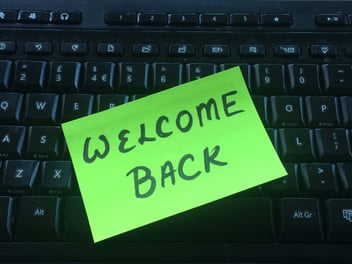What is pregnancy discrimination?
According to a recent report by the Women and Equalities Committee, the UK has seen a rise in the number of pregnant people being discriminated against at work. Apparently, government is planning to tackle this but as yet we haven’t exactly been told how.
“When I was pregnant, each and every employee was asked to go for a one-to-one to discuss end of year bonuses. I was not. I felt side-lined.”
Sadly, we’re told this is a common reaction from some employers – they tiptoe so quietly around their employee that they end up discriminating against them. And in the worst cases, this is an active attempt to make life uncomfortable so that the employee will have seconds’ thoughts about returning post birth.
Employers need to be mindful of how they treat their pregnant employee. If they don’t, they could be viewed as discriminatory.
It’s not all bad news of course. Many employees have positive experiences at work during their pregnancy, like one employee.
“I didn’t feel side-lined, I just had to put up with comments about how big I was! Everything was done by the book by our HR department, regular meetings, work area assessment etc. My issues began when I applied for a four-day week upon return.”
If you are discriminated against when pregnant or also when returning to work after a baby, you could end up taking the case to an employment tribunal. But in the UK, this is an expensive option so many cases go unchallenged.
However, in other European countries like Germany for example, employees are protected from redundancy during and after pregnancy. Where this leaves the UK post Brexit is anyone’s guess. Meanwhile, here are some need-to-knows:
1. Know your rights
This goes for employees and employers alike. But if you’re pregnant, you don’t have to tell your employer you are pregnant straight away, but must tell them 15 weeks before the due date. You’re entitled to time off to go to antenatal and pregnancy-related appointments and you’re also allowed time off for any pregnancy-related illnesses.
If your employer makes noises about any time you have off, it could be viewed as pregnancy discrimination. However, many people choose to take antenatal appointments after working hours to have as little impact on their working day as possible. This is helpful if your company is a small business – they may struggle with extended periods of absences – so bear this in mind.
2. No quick decisions
Many parents agree that the future isn’t always clear when it comes to having babies. No matter what you think you might do regarding work before your baby is born, it’s often the case that things can change. You don’t have to commit to or discuss your plans with your employer straight away as your employer can assume that you will take 52 weeks leave unless you state otherwise. Find out more here.
3. What about Shared Parental Leave?
It’s not a given anymore that it’s the mother who will go on extended maternity leave. Shared Parental Leave is an option these days and employers need to take it seriously. It’s still in its infancy, but we hope that as more employers see childcare as a parental issue rather than a ‘female’ one, pregnancy discrimination against working mums may decrease.
4. A flexible future ahead?
It’s a good idea to start saving while in full-time employment just in case you do decide to return to work flexibly at a later date. Reduced hours or days will result in less income, so the more you can save now, the better. Find out what your employer’s flexible policy is, if they have one.
If you do decide to leave your job once your baby is born, regardless of the reason, there may come a time when you wish to return to work again. It’s good to stay connected with old employers and colleagues, be active on social media, particularly LinkedIn and keep up to date with what’s going on in your industry
You can also register with our recruitment agency which specialises in flexible working and we’ll be happy to help you find a new role that fits around your family – and we place dads and mums alike. Meanwhile, good luck on the journey that is parenting – it’s the best (and hardest) job in the world!


 Back to resources
Back to resources 4 min read
4 min read








